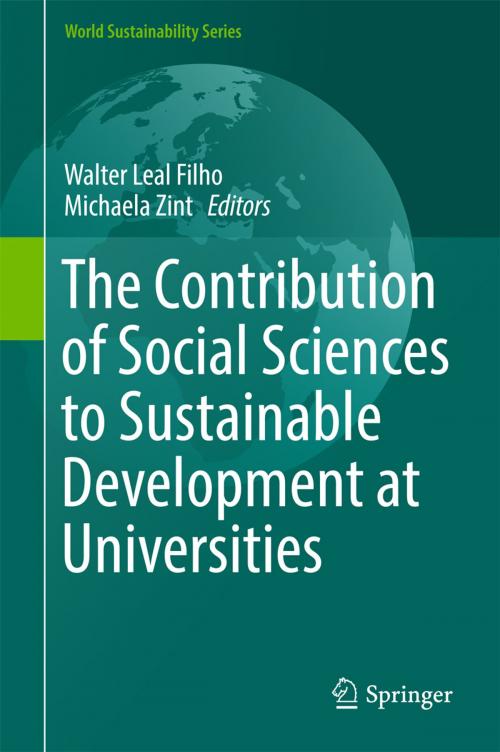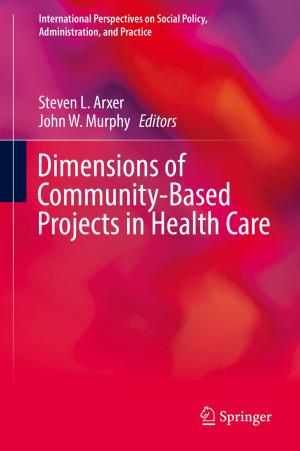The Contribution of Social Sciences to Sustainable Development at Universities
Nonfiction, Science & Nature, Technology, Environmental, Science, Biological Sciences, Environmental Science, Nature| Author: | ISBN: | 9783319268668 | |
| Publisher: | Springer International Publishing | Publication: | January 6, 2016 |
| Imprint: | Springer | Language: | English |
| Author: | |
| ISBN: | 9783319268668 |
| Publisher: | Springer International Publishing |
| Publication: | January 6, 2016 |
| Imprint: | Springer |
| Language: | English |
This volume is the first of its kind to present contemporary, state-of-the-art examples of how social science theories, models, and findings can advance all aspects of campus sustainability, an area that has so far been largely neglected. The individual chapters reflect the broad diversity of research on sustainable campus development conducted within and across basic and applied social science disciplines, drawing on a range of methods and case studies from around the world. Institutions of higher education have been among the leading promoters of sustainable development. However, efforts to transition to sustainability have been largely dominated by technological “solutions” and universities and colleges are increasingly recognizing that this transition cannot be achieved without attention to the human dimension. Administrators, campus sustainability officers and other university staff, faculty members and students, as well as alumni and external constituents all help to shape which sustainability innovations and initiatives are considered and pursued, and their participation determines the ultimate success of sustainability efforts. The book’s individual contributions illustrate how the social sciences can broaden visions of what may be possible, identify the advantages and disadvantages of different instrumental and emancipator approaches, evaluate interventions’ effectiveness, and offer processes for learning from mistakes and successes in ways that support continuous advances toward sustainability. Given that the majority of social science research stems from universities, the level of trust in these institutions, and their mission to develop societal leaders, higher education institutions are ideally suited for testing, assessing and modeling the social innovations needed to achieve sustainability on campuses and beyond.
This volume is the first of its kind to present contemporary, state-of-the-art examples of how social science theories, models, and findings can advance all aspects of campus sustainability, an area that has so far been largely neglected. The individual chapters reflect the broad diversity of research on sustainable campus development conducted within and across basic and applied social science disciplines, drawing on a range of methods and case studies from around the world. Institutions of higher education have been among the leading promoters of sustainable development. However, efforts to transition to sustainability have been largely dominated by technological “solutions” and universities and colleges are increasingly recognizing that this transition cannot be achieved without attention to the human dimension. Administrators, campus sustainability officers and other university staff, faculty members and students, as well as alumni and external constituents all help to shape which sustainability innovations and initiatives are considered and pursued, and their participation determines the ultimate success of sustainability efforts. The book’s individual contributions illustrate how the social sciences can broaden visions of what may be possible, identify the advantages and disadvantages of different instrumental and emancipator approaches, evaluate interventions’ effectiveness, and offer processes for learning from mistakes and successes in ways that support continuous advances toward sustainability. Given that the majority of social science research stems from universities, the level of trust in these institutions, and their mission to develop societal leaders, higher education institutions are ideally suited for testing, assessing and modeling the social innovations needed to achieve sustainability on campuses and beyond.















